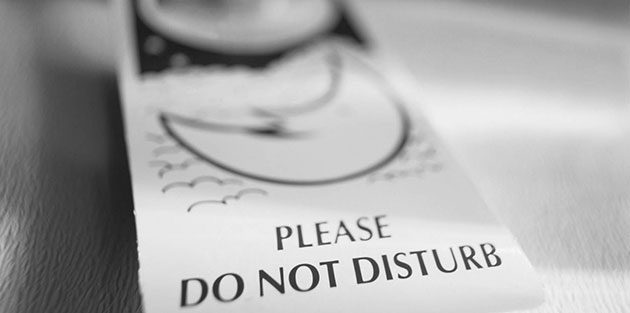Regulation of Lodging by the Market Process by Howard Baetjer Jr.
Does the lodging industry need government regulation? I don’t think so, and I’m more convinced than before after listening to a fascinating EconTalk conversation between host Russ Roberts and Nathan Blecharczyk, a founder of the lodging service Airbnb.
Blecharczyk explains that every Airbnb customer rates every property in which she stays for cleanliness, value, and the accuracy of its description on the website, and every property owner rates every customer who stays with him. Roberts then responds as follows (the emphasis is mine):
To a large extent, your trust system and the reviews that you generate on both sides of the transaction are the regulators. Right? So, the guest that came before me is the person who inspected the property for me. So in some sense the technology and the way it brings people together is a substitute for regulation.
I think Roberts is almost exactly correct here. The regulator of housing quality in today’s world is best understood not as a person or agency but as a process. First, the customers rate the properties; then, Airbnb posts the customers’ ratings; and then, both Airbnb’s prospective customers and other property owners react to that information. Property owners who would like to rent their properties via Airbnb are effectively forced to meet the standards upheld by the other properties offered, in order to win customers. That process of judgment, communication, and reaction is not “a substitute for regulation,” as Roberts says; it is a substitute for government regulation. It is a superior kind of regulation, provided by the market process.
Here are some of the ways in which it is superior:
- Instead of being inspected every year or so, each property is inspected every time it is rented.
- Instead of getting a cursory look-over by a government employee just doing his job, the property gets a thorough examination by someone with her own comfort and money involved.
- Instead of being enforced by authorities’ restrictions on the choices of renters and property owners, standards of quality are enforced by those choices.
- Instead of being subject to “capture” by the regulated insiders of the industry—hotels and motels eager to use regulation to suffocate these new competitors—this regulatory process is itself regulated (kept fair) by outsiders’ freedom to participate in the industry.
- Instead of staying on the books for years after they stop making sense—if they ever did—the standards generated by this regulatory process are constantly being reevaluated, and they’re cast off as soon as they don’t make sense.
Airbnb’s collection and publication of customer ratings is something that every other hotel, motel, and lodging house is free to imitate. This freedom eliminates the rationale for government regulation of lodging services.
That rationale is based on “market failure” due to imperfect information. In the standard story, we need government regulation because lodging is not a repeat-purchase item, so the market fails to give consumers information on which to judge its quality before using it. Hence consumers might be taken advantage of, so they need government to regulate quality. Maybe that argument had some merit in days past—I’m doubtful—but it surely has no merit now. The quality of Airbnb offerings is as closely regulated as I can imagine it being.
Now that real-time customer ratings over the Internet are easy, governments should stop regulating hotels. The market process does that better than governments can.
ABOUT HOWARD BAETJER JR.
Howard Baetjer Jr. is a lecturer in the department of economics at Towson University and a faculty member for seminars of the Institute for Humane Studies. This article is based on ideas from his book, Free Our Markets: A Citizens’ Guide to Essential Economics.


